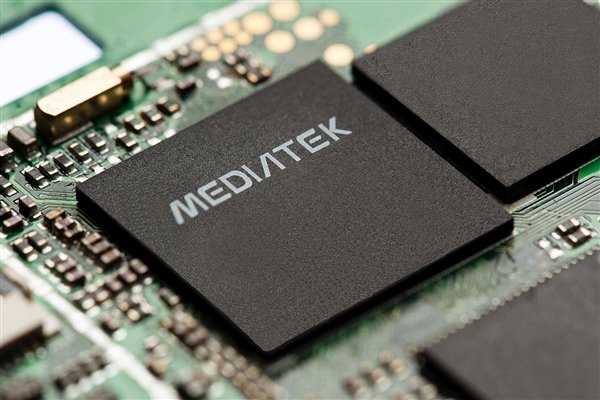MediaTek Secures $1 Billion AI Chip Order from Google, with 2026 Launch
In the current global landscape of increasingly fierce technological competition, AI chips have emerged as one of the core driving forces behind the development of artificial intelligence technology, with their market demand continuing to soar. MediaTek, a globally renowned semiconductor company, has accumulated extensive technical experience and market resources through years of in-depth involvement in the mobile processor field. In recent years, MediaTek has keenly sensed the immense potential of the AI chip sector and has actively laid out its research and development as well as market expansion in this area.
Meanwhile, Google, as a global tech giant, boasts profound technical reserves and a wide range of application scenarios in the field of artificial intelligence. However, with the continuous expansion of its business, Google has set higher requirements for the performance, cost, and supply stability of AI chips. Against this backdrop, Google has chosen to outsource part of its TPU chip design and has reached a cooperation agreement with MediaTek to jointly develop the next-generation TPU chips to meet Google's growing AI computing needs.
Project and Technical Details
 The TPU chip developed in collaboration between MediaTek and Google is expected to be the TPU v7, which will be manufactured using TSMC's advanced 3nm process. The chip has already completed tape-out in September and is scheduled for official mass production and launch in 2026, mainly concentrated in the fourth quarter of 2026. The mass production of this chip signifies that MediaTek's technical prowess in the AI chip domain has been recognized by international tech giants and also showcases MediaTek's profound accumulation in high-end chip manufacturing processes.
The TPU chip developed in collaboration between MediaTek and Google is expected to be the TPU v7, which will be manufactured using TSMC's advanced 3nm process. The chip has already completed tape-out in September and is scheduled for official mass production and launch in 2026, mainly concentrated in the fourth quarter of 2026. The mass production of this chip signifies that MediaTek's technical prowess in the AI chip domain has been recognized by international tech giants and also showcases MediaTek's profound accumulation in high-end chip manufacturing processes.
Moreover, MediaTek is also involved in the development of the next-generation TPU v8 chip, which will utilize TSMC's 2nm process and is targeting a 2028 launch.
Significance of the Collaboration
This collaboration marks MediaTek's first ASIC custom chip business. The company's CEO, Rick Tsai, had previously predicted that this business would contribute $1 billion in revenue to the company next year. Through this partnership with Google, MediaTek can gain in-depth insights into the technical requirements and R&D philosophies of top international tech companies, further enhancing its own R&D capabilities and product innovation. Additionally, this collaboration will help MediaTek accumulate valuable customer resources and market experience in the AI chip field, laying a solid foundation for its future expansion into more AI chip businesses.
Google's decision to collaborate with MediaTek on TPU chip development is driven by several factors. On one hand, it aims to reduce costs. By adopting a dual-supplier strategy, Google can effectively reduce its dependence on a single supplier, lower chip procurement costs, and mitigate supply risks. On the other hand, MediaTek's technical strength and cost advantages in chip design and manufacturing enable it to provide more cost-effective AI chip solutions for Google, meeting the growing computational needs in Google's artificial intelligence domain. Moreover, this partnership will also help Google further optimize the performance and power consumption of its AI chips, enhancing its technical competitiveness in the field of artificial intelligence.
Future Outlook
The collaboration between MediaTek and Google is just the beginning of their cooperation in the AI chip field. In the future, as their cooperation continues to deepen and expand, it is expected to yield more achievements in AI chip R&D, product innovation, and market promotion. MediaTek will continue to adhere to the philosophy of technological innovation and customer-first, constantly enhancing its technical capabilities and product performance to provide Google with higher-quality and more efficient AI chip solutions. At the same time, MediaTek will also actively seek cooperation with other tech companies to further consolidate its market position in the AI chip field. Google, on its part, will continue to increase its R&D investment in the field of artificial intelligence, leveraging the strength of partners like MediaTek to continuously enhance its technical capabilities and market competitiveness in the field. The cooperation between the two parties will inject new vitality into the global artificial intelligence industry, promoting the widespread application and rapid development of AI technology on a global scale.
Conevo IC Chip Distributor
As a globally leading semiconductor chip distributor, Conevo is dedicated to providing customers with high-performance and highly reliable IC solutions. Its product line widely covers multiple core fields such as analog, digital, radio frequency, power management and storage. Conevo offers a rich variety of IC categories, including but not limited to high-performance FPGAs, advanced power management chips, and highly integrated storage solutions, which can meet the needs of different industries and application scenarios.
● XC3S500E-4FGG320C: A high-performance FPGA chip that adopts advanced manufacturing processes, featuring powerful logic processing capabilities and flexible configuration options. It is widely used in communication, industrial control and other fields.
● TMUX1574PWR: A high-performance analog switch chip featuring low on-resistance and high signal integrity, suitable for high-speed signal switching and multiplexing scenarios.
● 5SGXMA3K2F35C3N: A highly integrated system-on-chip that integrates multiple functional modules, effectively enhancing the performance and reliability of the system. It is suitable for complex embedded systems.
Website: www.conevoelec.com
Email: info@conevoelec.com








